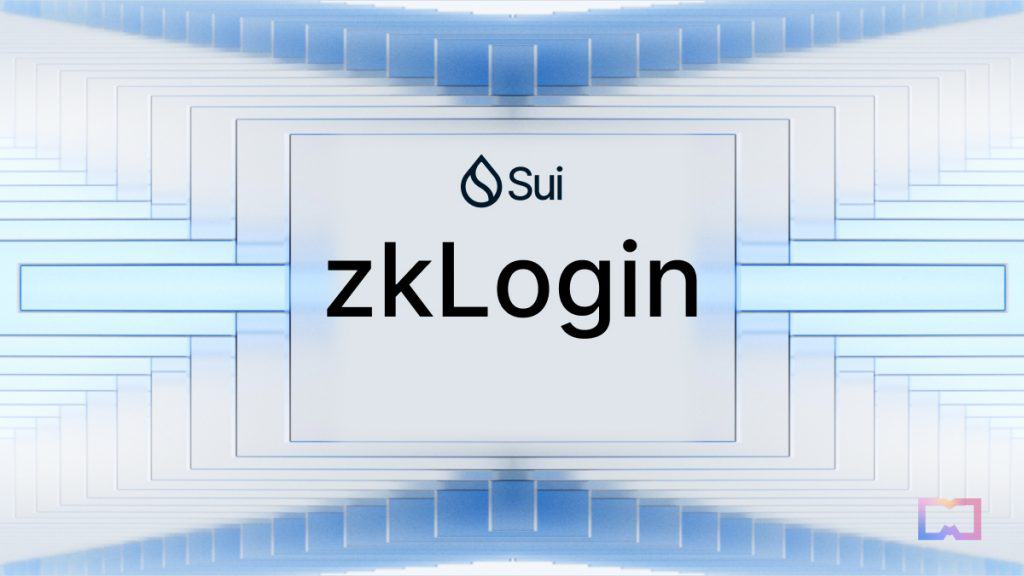Sui Launches zkLogin for Google and Twitch to Drive Web3 Adoption


In Brief
Sui launched zkLogin, a Web3 authentication solution that allows Web3 users to log into dApps using their existing accounts with Google, Facebook, Twitch and other third-party providers.
Sui plans to integrate zkLogin with Microsoft, Apple, WeChat and Amazon in future.

Layer 1 blockchain Sui today announced the launch of zkLogin, a Web3 authentication solution enabling users to access decentralized applications (dApps) through their Web2 social accounts.
Sui said that zkLogin eliminates the need for users to go through a complex onboarding process, which typically involves wallet installation, seed phrase management, and private key storage for on-chain dApps transactions. Instead, developers can offer users the convenience of authenticating on their preferred dApps using their existing accounts from platforms like Google, Facebook, Twitch, and various Web2 social accounts through zkLogin.
In the future, Sui plans to integrate zkLogin with Microsoft, Apple, WeChat and Amazon.
“By enabling users to access dApps with the social logins they have grown comfortable using, zkLogin removes a major hurdle for bringing the benefits of blockchain-based applications to billions of mainstream users,” Greg Siourounis, managing director of the Sui Foundation, said in a statement.
Sui’s zkLogin combines zk-SNARKs and JSON Web Tokens to leverage zero-knowledge proof technology. This technology allows one party to verify the accuracy of a statement without revealing the underlying data.
This means that users can authenticate their identity or wallet ownership without disclosing the specific credentials necessary to access the account.
The zkLogin Setup Ceremony
To enhance computational efficiency in zero-knowledge proof generation, the Sui Foundation is organizing a ceremony to create a Common Reference String (CRS) accessible for any application on the Sui platform.
A Common Reference String (CRS) is a cryptographic concept and component used in various cryptographic protocols, including zero-knowledge proofs. Generating this string requires both the circuit description and securely generated random numbers.
Trust in this process relies on two fundamental principles:
- Ensuring faithful execution of the sampling process.
- Reliable disposal of confidential random numbers.
Sui said it engages multiple parties and employs a distributed protocol to ensure that the eventual setup aligns with the desired security and privacy assurances, even if only one of these parties follows the protocol honestly.
In the context of zero-knowledge proofs and related cryptographic protocols, a CRS is a random and publicly known string of data that is used to help facilitate the security and functioning of the protocol.
This string typically contains certain random values and parameters that are generated in a trusted setup process. The CRS serves as a common foundation or reference point for both the prover and verifier in a cryptographic interaction.
In zero-knowledge proofs, for example, the CRS is used to ensure that the proof generation process is secure and that the verifier can trust the information provided by the prover without revealing any sensitive or confidential details.
The generation of a CRS often involves a trusted setup ceremony, where multiple parties collaborate to create the string in a way that ensures its randomness and security.
According to Sui, the zkLogin setup ceremony employs the Groth16 zkSNARK system, known for its compact proof size and efficient verifier performance. However, this efficiency comes with the initial one-time trade-off of a computationally intensive setup operation.
Sui is inviting up to 50 blockchain, cryptography and technology experts and up to 100 validators to participate in contributing to the setup ceremony.
In addition, zkLogin is now accessible for immediate integration by all Sui developers, enabling them to offer this feature to their application users.
Disclaimer
In line with the Trust Project guidelines, please note that the information provided on this page is not intended to be and should not be interpreted as legal, tax, investment, financial, or any other form of advice. It is important to only invest what you can afford to lose and to seek independent financial advice if you have any doubts. For further information, we suggest referring to the terms and conditions as well as the help and support pages provided by the issuer or advertiser. MetaversePost is committed to accurate, unbiased reporting, but market conditions are subject to change without notice.
About The Author
Cindy is a journalist at Metaverse Post, covering topics related to web3, NFT, metaverse and AI, with a focus on interviews with Web3 industry players. She has spoken to over 30 C-level execs and counting, bringing their valuable insights to readers. Originally from Singapore, Cindy is now based in Tbilisi, Georgia. She holds a Bachelor's degree in Communications & Media Studies from the University of South Australia and has a decade of experience in journalism and writing. Get in touch with her via [email protected] with press pitches, announcements and interview opportunities.
More articles

Cindy is a journalist at Metaverse Post, covering topics related to web3, NFT, metaverse and AI, with a focus on interviews with Web3 industry players. She has spoken to over 30 C-level execs and counting, bringing their valuable insights to readers. Originally from Singapore, Cindy is now based in Tbilisi, Georgia. She holds a Bachelor's degree in Communications & Media Studies from the University of South Australia and has a decade of experience in journalism and writing. Get in touch with her via [email protected] with press pitches, announcements and interview opportunities.


















































